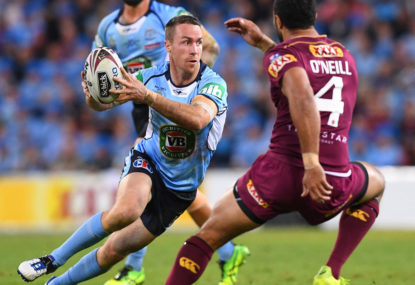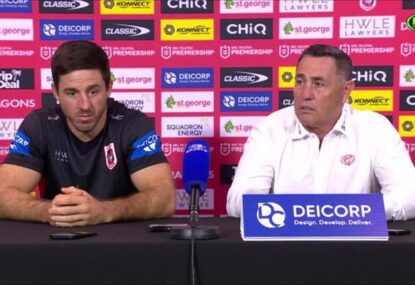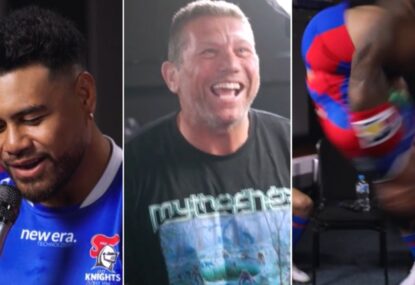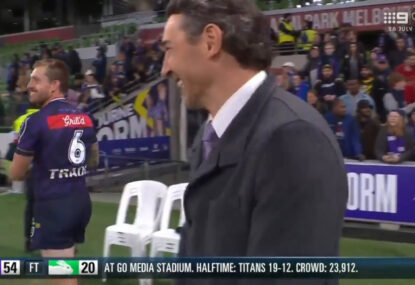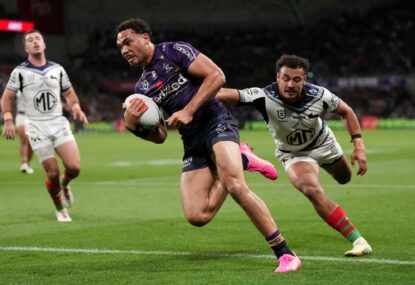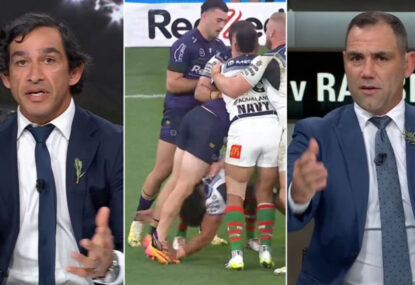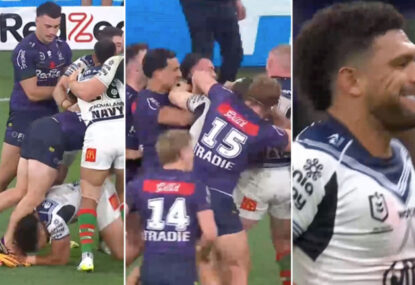The National Rugby League (NRL) and the Rugby League Players Association (RLPA) it seems are close to finalising a deal. This deal meant that the players attended the Dally M award ceremony and will indeed participate in the World Cup.
All of this is good news. It appears that maybe the players and the administration have worked out a way that they can be equal partners.
However, with any deal, it is the details that matter and is this equal partnership a true partnership?
Many fans might be sceptical when players talk about being equal partners and only assume that this is a cash grab. The thing is…it may well be. Yet, it would be of the game’s best interests that players are equal partners and that they help grow the game, they help attract sponsors and are held accountable for any misbehaviours that damage the reputation of the sport.
Though when discussing the term ‘equal partners’ it is important to define what this term means. The RLPA currently say they represent the players, which is obviously true for the elite playing level.
Under the previous deal, the RLPA on behalf of the players in the NRL secured a deal where only $460 thousand were allowed for any player outside the top 25 squads who played in the NRL.
Granted this amount may have increased over the course of the deal, but it does make one wonder, are the RLPA and the elite players who are going to be equal partners in the game forgetting everyone else who plays this game?
You might figure, so what. The NRL is played by the elite, and therefore any deal with the RLPA should just cover the elite.
That thinking is bogus, especially if we are meant to accept that players are going to be equal partners in the game. To have a real partnership, the RLPA along with the NRL need to look after all the interests of those who play the game.
What about players who play for the Port Macquarie Sharks in the Group 3 competition on the mid-north coast of New South Wales or the Barcaldine Sandgoannas in central west Queensland? What about any player across the nation who participates in either senior or junior level? Does the RLPA represent them as well? Unfortunately, at the moment, they do not.
I get it. You think it is a pipe dream for the RLPA and the NRL to work together in a genuine and equal partnership. Be that as it may, it should be the end goal for the game. Think about how it could work.
Imagine this, if the RLPA and the NRL were to work as equal partners, then the game could strive to make it as cheap as possible to play rugby league. Any junior who wished to play could have their prices reduced or even if the game makes a further profit, it could make it free for juniors to play.
Undoubtedly, the number of families that wish to see their children gain experience in athletic skills, teamwork which leads to improved social skills would now have an extremely viable option at their disposal. On top of this, a true partnership would allow any senior club to possibly waiver any fees for its players.
Furthermore, the game along with the players could seek to improve the insurance schemes for every club and every player at junior, senior and the elite level. How many working men and women who have wished to play have not participated in the sport or have quit because of the fear of and as a result of injury; as well as the costs associated with missing work? A true partnership that removed any financial barriers for players and families would see a game that knew no bounds.
Not only would a true partnership see the elite playing group and the RLPA working in conjunction with the administration, but it would also see them actively promoting the game. Something which at present is lacking.
For those unaccustomed to other sporting bodies, the Australian sports fan and rugby league fans get very little access to the playing and coaching groups within the clubs of the NRL. So, a part of being a true partner for the players’ means being involved with the media a lot more. Yes, greater access needs to be made to the press.

(Photo by Matt King/Getty Images)
A template to follow should be the National Football League (NFL) in America. Their media guidelines could easily be applied to the NRL. This media change would involve: greater media access after games, weekly player access to up to 45 minutes and practice and training camp access.
On top of this, all players and coaches have to be available to the media. At the moment, only selected players are made present, and often the press interviews seem more like a well-rehearsed speech rather than a legitimate discussion about the game or topic in question.
Moreover, to make sure no one flaunts the rules the NFL impose severe penalties on the teams that do not fulfil these obligations. Naturally, the NFL teams realise that media access helps promote the game and their brand and this obviously helps with their bottom line. Consequently, being an active participant in the promotion of the game is what an equal partner entails.
Finally, what happens when players do misbehave and bring the game into disrepute? Surely, there should be designated penalties that hurt the player’s pocket while at the same time addressing any issues that are present that are causing such negative behaviours.
Unfortunately, a lot of the actions off-field that bring the game into disrepute are a result of a player’s mental health. A lot of care needs to be taken in addressing a player’s well-being, while at the same time protecting the game’s image from being tarnished.
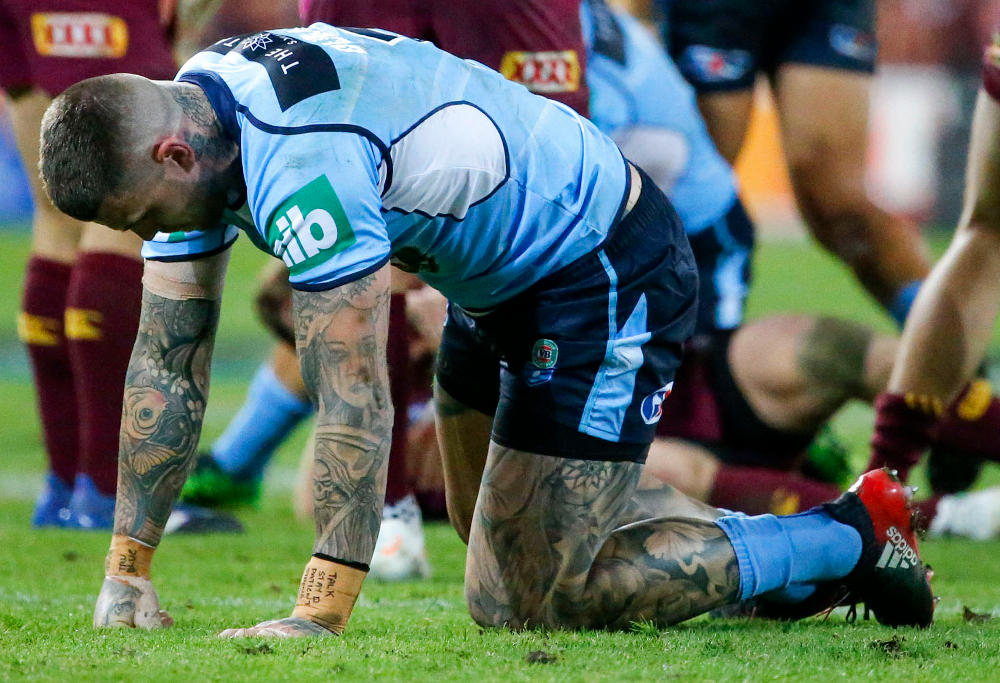
(AAP Image/Glenn Hunt)
How the two groups work this out remains to be seen, though from my experience a hit to the pocket seems to be an effective way for some to learn their lesson or move to change their ways. Maybe, the playing groups would work together to try and avoid any unfortunate events from happening as they would know, the foolish actions of one could hurt the many.
This form of collective regulation – though not perfect – has worked in many other areas of life and with the correct structures could prove beneficial to the game and the players themselves.
Overall, hearing of disputes between the players and the administration does the game no favours. In fact, it leads to resentment among the fans. Many fans are hardworking individuals who struggle to comprehend how people are arguing over hundreds of thousands of dollars. This perceived greed leads to resentment, which leads the fan to look elsewhere for their entertainment.
Accordingly, all parties need to be careful when negotiating for a future agreement outcome. Nonetheless, if the elite playing group, the RLPA, and the NRL form a true partnership that covered all players and costs associated with the game and provided full insurance cover, then rugby league would be the winner.






























































































